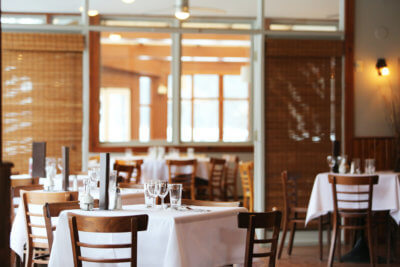Eat your hearts out, Vermont

You can get anything you want at Alice’s Restaurant
You can get anything you want at Alice’s Restaurant
Walk right in it’s around the back
Just a half a mile from the railroad track
And you can get anything you want at Alice’s Restaurant
~ Alice’s Restaurant, Arlo Guthrie
Well, it certainly was not a Christmas present when the announcement came that Vermont’s long-standing New England Culinary Institute (NECI) would close. For 40 years NECI trained chefs, providing them with educational credits as well as cooking skills; NECI enrolled as many as 800 students at its peak. Due to a severe drop in the restaurant business, more recently driven by the corona pandemic, causing a loss in cooking jobs, that enrollment had dropped dramatically.
Visiting NECI restaurants was worth road trips to Montpelier soon after we moved to Vermont in 1980. Later, in Burlington, eating at NECI Commons was a great choice. While most often we ate in the main restaurant section, I clearly remember an occasion when that seating was full and we were invited to sit at the preparation counter. It proved to be not only an eating pleasure but an educational one as well. The chef who trained the students also helped them prepare the food that we at the counter ate (much to our pleasure I may say). As he taught them, he also taught the customers. As a result, we learned some of the tools of the trade and the menus of the moment.
I can’t speak for the other customers, but I know I was drawn into learning-by-listening and testing the results. From my career “educatorial” bent, I felt it was a wonderful example of learning by doing with results tested—in this case, on your plate. I hate to see that opportunity lost.
As I look at other eating experiences, I see many of them connecting the food with learning. It happened whether we lived in Vermont or in Minnesota, so place was not an issue.
In Minnesota we became friends with a neighbor who was born and grew up in India. A Christian, he was at the low end of the social scale there and ended up migrating to this country where he gained college and post-graduate degrees and ran a laboratory at the Mayo Clinic.
He also introduced us to a small but delightful Indian restaurant in town. It was delightful because if we went there with our friend Chella, we were treated to true Indian cuisine that was over and above what was listed on the menu. I must admit to a certain feeling of being special as a result.
A couple of similar situations happened after we moved to Vermont, both, believe it or not, in Johnson. One happened to be an occasional meeting at the sandwich counter of the local deli with the late poet and playwright David Budbill. While we talked sandwiches not poetry or plays, food talk led me to Judevine, a stage version of his poetry and, thus, pulled pork led to the mysteries of logging northern Vermont and the basis for Rusty DeWees’ long-lasting stage character, “The Logger.”
At the west end of Johnson, we discovered a bakery that made its own rolls, scones and other delicacies. Getting to know the owner, we discovered he was also a short order cook who, when he was not at the bakery counter, sat in his kitchen, questioning what we would like in our sandwiches. What began strictly as dessert became a give-and-take order, and we became regular customers.
Finally, I want to say a bit about food’s ability to flavor communal connections. It happened in conjunction with our membership in a group of landowners in the Northeast Kingdom. Each of us owned property around a pond whose water had once been a source of electric power. The electric company had sold the lots around the pond, and the collective of landowners formed an association that governed its level and maintenance, such things as water quality, loons, moose, bears and fish, limitations on pond craft and any other matters that might affect things in and around the water.
Governing happened at an annual meeting of the owners when the group scrutinized what had happened the past year and planned for the upcoming one.
That was all fine and dandy, but what really mattered, once we had covered the agenda, was eating. Potluck brought people closer together than any or all of the agenda items—baked beans created closer human interaction than milfoil maintenance. So, once again, food had a harmonizing effect on our lives.
I do hope the current pandemic will show signs of diminishing so that culinary matters will bring life back to our stomachs. If it doesn’t, we will have to seek another galaxy. Aaah, restaurants of the universe may have to serve our spaceship! Science fiction author Douglas Adams knew this when he established the Restaurant at the End of the Universe.

